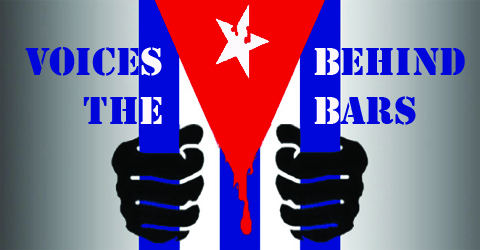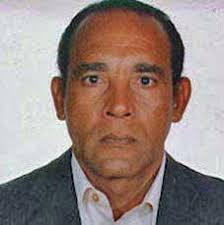
Image: “The Acidic Melody” by Joan Miró.
During the first year of the Revolution popular support was almost total. At the time, I was 10 years old and I remember the joy of the first days. The dictatorship had come to an end; the tyrant had fled; everything was hope. In that same year of 1959 the Law of Agrarian Reform was passed (which was the first, for there would be a second law later), and unanimous support continued for the most part. That became the topic of the moment in the media and among the people. The land was going to belong to the peasants. At last that grand aspiration of the Cuban nation was going to be fulfilled and the enthusiasm was not going to decrease.
I remember that in my hometown, San Luis in Pinar del Rio, the plaza that stands between the church and the park was filled with plows, threshing machines, other agricultural implements and some tractors. They were spontaneous contributions that came from merchants and other well-off people. Late into the year of ’59, I began to hear the earliest voices of doubt, very timid at first. A family friend of ours would stop to converse, and the discussions of those times were more or less along these lines:
“Listen, how can you say that? How can Fidel Castro be a Communist? Who can come up with such a thing, if that young man comes from a rich family, educated by the monks, lawyer?
“Hey, notice that they are putting communists in all the key places,” would say the skeptic.
“But he has said himself that he is not one,” the other would reply.
During the year that followed everyone knew that the “skeptic” was right and that the people had been deceived. But until then, almost everyone had seen the Revolution through sympathetic eyes: the Catholic Church, the Americans, the rich, and the entire media. Even if there had been a good number of spurious executions by firing squad and even if they had been denounced outside Cuba, the Cuban people had justified them in one way or another. Within the country, the opinion of the majority was that a revolution had been needed. The most important cause for disgust among the population was that the rulers and other politicians were enriching themselves with money from the public treasury.
With the initial support that the Revolution had, if the promised course of restoring democracy and eliminating the great governmental corruption had actually been followed, Cuba could have become a very prosperous country and, even more importantly, could have prospered from a great moral and human richness that could have served as an example for all the sister nations of Ibero-America. This could have all happened under a legitimate government headed by Fidel Castro, who could have been the great national figure anyway, and governed with nearly no opposition and without having to oppress anyone. But the Revolution of 1959 was born from that great lie that clouded everything.
Looking back at what has occurred from the commodity of retrospective, I believe that all the bad decisions of those first years were marked by that original sin. From the very moment that Batista supporters were being executed, which began from the very first day. I do not doubt that amongst those executed were some assassins and torturers, but why not allow them a fair trial especially since the leader of the Triumph of the Revolution was a lawyer? (The Nazis, during World War II, were far worse, and the Nuremberg trials were still fresh in the collective memory. Some of those high-ranking Nazis were pardoned; others were sentenced to prison and others given the death penalty.) Why didn’t he give his former enemies an actual trial? Even before an international court? What an example a trial like that would have been for our people! How much would we have gained in civility! How much prestige would that have brought to a revolution that declared itself an advocate of human rights and whose generosity had been proclaimed in its platform! How many of the best figures of humanity would have come out in support of such a decision!
However, the option of killing weighed on the minds of those young leaders, I guess, in order to radicalize the Revolution and also to plant terror and eliminate any possible future enemies. In fact, even those initial measures that benefited ample sectors were actually marked by haste. Fidel Castro was very skillful in the ability to carry out measures that had broad popular support while he embraced divisive power strategies and unfurled an inflammatory rhetoric.
My opinion is that it could all have been done much better and with more calm. It could have benefited the poorest anyway but without making enemies of anyone. One success was the literacy campaign.Who would oppose making illiterate people literate? But why did this task have to be completed in just one year, and why were young adolescents separated from their families and taken to places that in 1961 were dangerous? The same thing could have been accomplished with much more calm and rationality. Of course, that way the propaganda would have lost some of its effect.
The betrayal even reached the agrarian reform. After the first one, a second law was passed that changed the character of the first. Now the peasants were no longer going to be the owners of the land, but instead employees of huge state farms. The rural estate had changed ownership. Years later, when I was a University student (it was mandatory to take and pass a course on Marxism-Leninism), I remember that one day a professor explained to us the reason for that change. Because she was a professor of Marxism, which in those days was like saying she was an inappealable judge of knowledge, I assumed that this would be the official explanation and not any other previous one. She told us that giving land to a peasant was to turn him into a class enemy. I had an image of a peasant without land, converted into a prosperous country person, producing a farm from his property, with a good home and car. But that dream was to turn the poor into a bourgeois, into an ideological enemy, an “enemy of the people”.
In short, with the revolutionary triumph Fidel Castro had the golden opportunity in his hands to take the people along the path of peace and democracy, toward a grand and well-shared prosperity and a harmonious civility in order to make Jose Marti’s formula of “WITH ALL AND FOR THE GOOD OF ALL” a reality. He preferred to take the route of confrontation and communism, an ideology foreign to our history and our environment and that essentially violated human rights. This move allowed him to govern with totalitarian power. What has been the result? That once-prosperous economy ended up converted into a country in ruin, a people once united currently more divided than ever, not only by differences of opinion but also by geographic separation and the scattered hopes of our young.
He could have been a grand liberator yet he chose to turn himself into the head of a tyranny that has lasted 50 years. What happened to us was nothing more than what the ancient Romans already knew: When the best is corrupted, the worst occurs (Corruptio optimi, pessima).
Adolfo Fernandez Sainz, prisoner of conscience, Canaleta prison, Ciego de Ávila
(The author turns 61 years old today, November 30)
December 7, 2009
Categories: Adolfo Fernández Sainz . . Author: voicesbehindbars . Comments: 3 Comments












